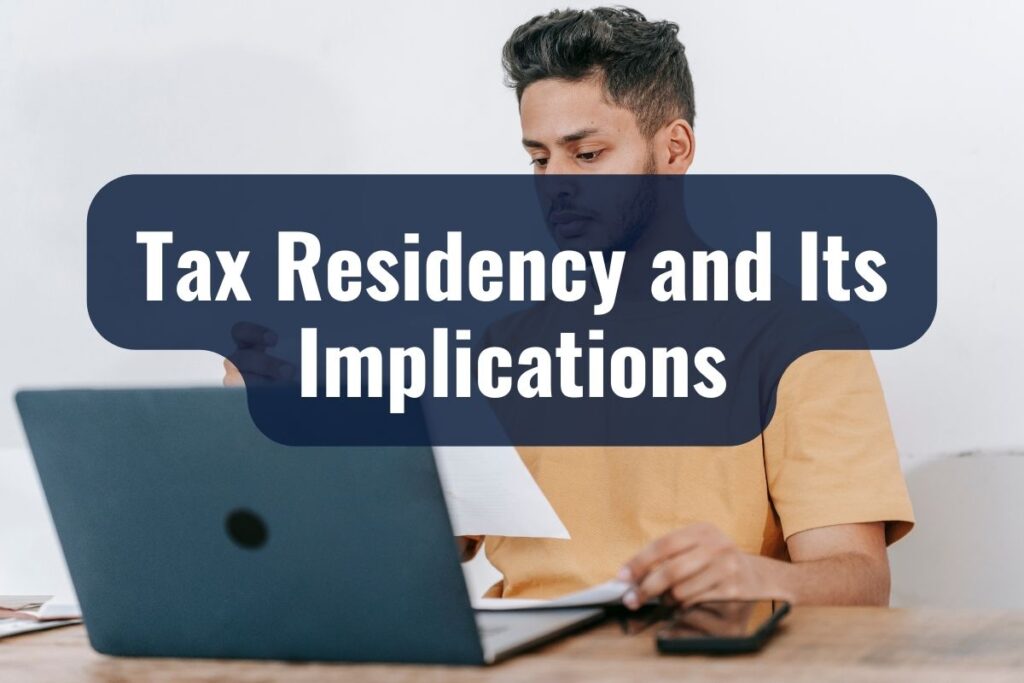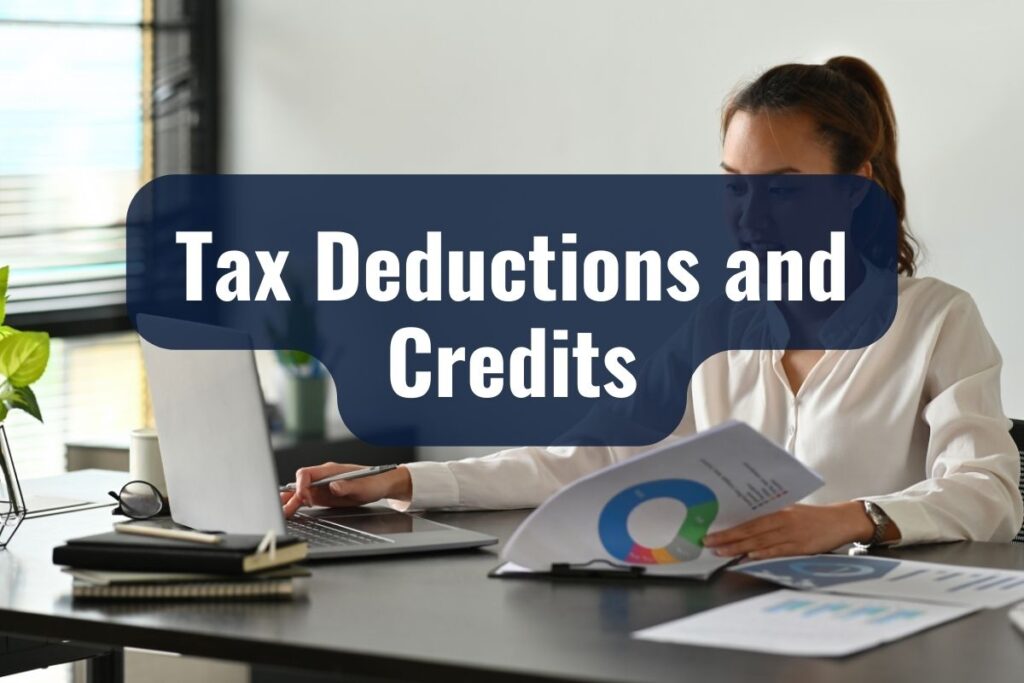Taxation is a fundamental aspect of living and working in Finland, directly affecting everyone’s financial well-being. For foreigners, the Finnish tax system can seem complex due to differences from their home countries’ tax regulations.
By understanding your tax responsibilities and the mechanisms at play, you can ensure compliance with local laws and potentially optimize your tax situation. Whether you are in Finland for work, business, or other reasons, grasping the basics of tax in Finland is crucial for a smooth and trouble-free experience in the country.
KEY TAKEAWAYS
- The Finnish Tax Administration is the primary authority for tax matters.
- Tax residency in Finland is determined by the duration of stay and personal ties.
- Residents are taxed on global income; non-residents only on Finnish-sourced income.
- Finland employs a progressive tax system for personal income.
- VAT and other indirect taxes affect both consumers and businesses.
- Social security contributions are mandatory for employees, employers, and the self-employed.
- Business owners and self-employed individuals face specific tax obligations.
- Understanding tax obligations is crucial for compliance and financial planning.
Understanding the Finnish Tax System
The Finnish Tax Administration
The Finnish Tax Administration, known as “Verohallinto,” plays a pivotal role in managing the country’s tax affairs. It oversees the collection of taxes, ensures compliance with tax laws, and provides guidance to taxpayers. The administration is committed to offering comprehensive support and resources, many of which are available in English to cater to the needs of the international community in Finland.
Progressive Taxation for Personal Income
Finland employs a progressive tax system for personal income, meaning that the tax rate increases as income rises. This system is designed to ensure fairness and equity in tax contributions, with higher earners contributing a larger proportion of their income in taxes. Tax rates are applied to various types of income, including wages, business profits, and capital gains, with specific brackets and rates applicable to each category.
Tax Residency Status and Its Impact
Your tax residency status in Finland significantly influences how you are taxed. The country distinguishes between resident and non-resident taxpayers, each subject to different tax rules:
Resident Taxpayers
Individuals who have been living in Finland for more than six months continuously are considered tax residents. They are taxed on their worldwide income, meaning that income earned both in Finland and abroad is subject to Finnish taxes.
Non-Resident Taxpayers
Those staying in Finland for less than six months are generally considered non-residents. Non-residents are taxed only on their Finnish-sourced income, such as wages earned from working in Finland or income from Finnish property.
Understanding your tax residency is crucial as it determines your tax obligations and entitlements. This distinction is especially important for foreigners who may have income sources from multiple countries or who split their time between Finland and their home country.
Tax Residency and Its Implications

Criteria for Tax Residency in Finland
Determining tax residency is the first step for any foreigner dealing with Finnish taxes. The primary criterion for tax residency is physical presence: if you reside in Finland for more than six months continuously, you are generally considered a tax resident. This status is not only based on the duration of stay but also on whether you have a permanent home or strong personal and economic ties to Finland.
Implications of Tax Residency Status
The implications of your tax residency status are significant:
For Resident Taxpayers
As a tax resident, you are subject to Finnish tax on your worldwide income. This includes income earned outside of Finland, for which Finland may offer credit to avoid double taxation. Resident taxpayers are required to file an annual tax return, where they report their global income and claim any eligible deductions or credits.
For Non-Resident Taxpayers
Non-residents are taxed only on their Finnish-sourced income. This typically includes income earned from employment in Finland, business activities conducted in Finland, and property located within Finland. Non-residents are usually taxed at a flat rate on their Finnish income, with limited deductions and credits available.
The Importance of a Tax Card
For individuals working in Finland, obtaining a tax card is essential. The tax card indicates the tax rate that your employer should apply to your salary. Residents and non-residents alike must apply for a tax card. For residents, the tax card reflects a progressive tax rate based on estimated annual income. For non-residents, a flat rate is generally applied, although treaties and specific circumstances may alter this rate.
Applying for a tax card requires providing the Finnish Tax Administration with information about your expected income, deductions, and credits. It is crucial to ensure that this information is accurate to avoid under- or over-payment of taxes. Adjustments can be made during the year if your income situation changes significantly.
Tax in Finland: Income Taxation for Foreigners
Taxation of Employment Income
Foreigners working in Finland are subject to income tax on their earnings. The taxation method depends on their residency status. Residents are taxed on their global income, including wages, salaries, and other compensation for services rendered, based on a progressive tax rate. Non-residents, on the other hand, are taxed only on their Finnish-sourced income, typically at a flat rate, although specific tax treaties may influence this rate.
Business and Capital Income
In addition to employment income, foreigners may generate income through business activities or investments in Finland. For tax residents, both Finnish and worldwide business and capital income are subject to taxation. Non-residents are taxed only on business and capital income sourced within Finland.
Business income encompasses earnings from self-employment and business operations, while capital income includes dividends, interest, and rental income. The tax treatment of these income types is guided by Finnish tax law, which specifies applicable rates and deductions.
Tax Rates and Brackets
Finland’s progressive tax system applies to residents, with tax rates escalating with income. The specific tax brackets and rates are updated annually, reflecting changes in fiscal policy and economic conditions. Non-resident taxpayers typically face a flat tax rate on their Finnish-sourced income, although tax treaties between Finland and other countries can modify these obligations, potentially reducing the tax burden or altering how income is taxed.
Submission of Tax Returns
All taxpayers in Finland, including foreigners, are required to file an annual tax return. This process involves reporting income, taxes already paid, and any applicable deductions or credits. Residents report their worldwide income, while non-residents report only their Finnish-sourced income. The Finnish Tax Administration issues pre-completed tax returns to many taxpayers, based on information it already has. Taxpayers must review, amend if necessary, and approve these returns, adding any unreported income or deductions.
Tax Deductions and Credits

Overview of Allowable Deductions
The Finnish tax system permits certain deductions from taxable income, potentially lowering the overall tax liability for both residents and non-residents. These deductions are designed to reflect taxpayers’ ability to pay, considering their personal circumstances and expenses related to income generation.
Work-related Expenses: Taxpayers can deduct expenses directly related to earning income, such as travel costs between home and work, work-related study expenses, and necessary tools or equipment not provided by the employer.
Home Loan Interest: Interest on loans for the purchase or renovation of a primary residence can be deductible, benefiting homeowners by reducing their taxable income.
Voluntary Pension Contributions and Insurance Premiums: Contributions to voluntary pension schemes and certain insurance premiums may also be deductible, encouraging savings for retirement and financial security.
Tax Credits
In addition to deductions, the Finnish tax system offers various tax credits that directly reduce the amount of tax owed. These credits are applied after calculating the taxable income and can significantly impact the final tax payment.
Credit for Domestic Costs: This credit applies to expenses for household work, such as cleaning or renovation services performed in the taxpayer’s home.
Earned Income Tax Credit: Aimed at low to middle-income earners, this credit reduces the tax burden on earned income, effectively increasing take-home pay.
Credit for Double Taxation: To prevent the double taxation of income taxed both in Finland and another country, taxpayers can claim a credit for taxes paid abroad. This credit is particularly relevant for tax residents with foreign income.
Application and Limits
The application of deductions and credits requires taxpayers to provide detailed information and, in some cases, documentation supporting their claims. There are limits and conditions for many deductions and credits, ensuring that they are applied fairly and targeted towards intended policy goals.
Taxpayers must be proactive in claiming these tax benefits, as they are not automatically applied. Filing an accurate and comprehensive tax return is essential for taking full advantage of the available deductions and credits. The Finnish Tax Administration provides guidance and resources to help taxpayers understand their eligibility and the process for claiming these benefits.
VAT and Other Indirect Taxes
| Type of Goods/Services | VAT Rate |
| Standard Rate | 24% |
| Foodstuffs, Restaurants | 14% |
| Books, Medicines, Cultural Events, Passenger Transport | 10% |
Value-Added Tax (VAT)
Value-Added Tax (VAT) is a significant aspect of the Finnish taxation system, impacting most goods and services consumed within the country. VAT is charged at various rates depending on the type of goods or services. The standard rate is 24%, applied to most sales, but reduced rates of 14% for foodstuffs and restaurant services, and 10% for books, medicines, cultural events, and passenger transport, provide relief for essential items and services.
Businesses selling goods or services subject to VAT must register for VAT, collect it from customers, and remit it to the Finnish Tax Administration. For consumers, including foreigners residing in or visiting Finland, VAT is typically included in the price of goods and services, making it a largely invisible yet ubiquitous element of financial transactions.
Other Indirect Taxes
Beyond VAT, Finland imposes several other indirect taxes, each designed to address specific policy objectives or to fund particular public services:
- Excise Duties: These are levied on specific goods, such as alcohol, tobacco, and fuel. Excise duties are intended to reflect the external costs associated with the consumption or use of these goods, influencing consumer behavior while generating revenue.
- Property Taxes: Property owners in Finland are subject to property taxes, calculated based on the value of their real estate. Rates vary by municipality but are applied uniformly within each locality, contributing to local government funding.
- Vehicle Tax: Owners of vehicles registered in Finland must pay a vehicle tax, which is based on the vehicle’s type, emissions, and weight. This tax encourages the use of environmentally friendly vehicles and helps finance road maintenance and infrastructure projects.
The Role of Indirect Taxes
Indirect taxes play a crucial role in Finland’s tax revenue structure. By diversifying the tax base, these taxes help stabilize public finances and fund essential services. Moreover, through targeted rates and exemptions, indirect taxes can promote social and environmental policy goals, such as reducing carbon emissions or encouraging healthy lifestyles.
For foreigners in Finland, understanding VAT and other indirect taxes is important for both personal finance management and if operating a business. Awareness of how these taxes are applied and their impact on prices is essential for making informed purchasing decisions and for compliance in the case of business operations.
Social Security Contributions

In Finland, social security contributions are a vital component of the welfare system, ensuring access to healthcare, pensions, unemployment benefits, and other social services for all residents, including foreigners. These contributions are split between employers and employees, with self-employed individuals also required to make payments based on their income.
Employee Contributions
Employees in Finland contribute to the social security system through deductions from their salaries. These contributions cover pension insurance, unemployment insurance, and health insurance, among other benefits. The exact percentage of these contributions varies depending on factors such as the employee’s income level and the specific benefits covered. It’s important for employees, including foreign workers, to understand that these deductions directly support their entitlement to various social benefits.
Employer Contributions
Employers are responsible for their part of social security contributions on behalf of their employees. These contributions are a significant portion of the overall cost of employment, funding the social security benefits that employees are entitled to. For foreign entrepreneurs and businesses operating in Finland, understanding and accurately calculating these contributions is essential for compliance and for managing labor costs effectively.
Self-Employed Contributions
Self-employed individuals, including freelancers and entrepreneurs without a formal company structure, must also make social security contributions. These contributions are based on their business income and provide access to the same range of social security benefits as those employed by others. The self-employed must register with the Finnish social security system and report their income accurately to ensure they contribute the correct amounts.
Impact on Net Income
Social security contributions significantly impact an individual’s net income, reducing the gross salary by the amount of these contributions. However, these deductions also represent an investment in each individual’s social safety net, providing protection against risks such as illness, unemployment, and old age. For foreigners living and working in Finland, it’s crucial to factor in these contributions when planning finances and understanding their net income.
Tax Obligations for Business Owners and Self-Employed Individuals
In Finland, business owners and self-employed individuals face a distinct set of tax obligations that are crucial for legal compliance and financial success. Understanding these obligations ensures that businesses operate smoothly and are positioned for growth and sustainability.
VAT Registration and Reporting
One of the primary responsibilities of most business owners, including self-employed individuals, is handling Value-Added Tax (VAT). If your business’s annual sales exceed a certain threshold, currently set at €15,000, VAT registration is mandatory. Upon registration, businesses must collect VAT on taxable sales and services, report these amounts periodically to the Finnish Tax Administration, and remit the collected VAT. Keeping accurate records of sales, purchases, and VAT payments is essential for compliance and for claiming VAT deductions on business-related purchases.
Income Taxation
Business income is subject to taxation differently depending on the business structure. Sole proprietors and partnerships report business income on their personal tax returns, where it is taxed as personal income. This means the progressive tax rates applicable to individuals also apply to business profits.
Limited companies (corporations) are taxed at the corporate tax rate on their profits, separate from the personal income of their owners or shareholders. Understanding the nuances of business income taxation is key to effective tax planning and management.
Prepayments and Final Taxation
Business owners and self-employed individuals may need to make tax prepayments based on estimated income for the year. These prepayments are adjusted based on actual income reported in the annual tax return, with any overpayment refunded or underpayment collected. Accurate income estimation and timely prepayment submission help avoid interest charges and ensure smooth cash flow management.
Social Security Contributions
In addition to taxes, self-employed individuals must also pay social security contributions based on their business income. These contributions provide access to the Finnish social security system, including health insurance, pension rights, and unemployment benefits. The rates and requirements for these contributions vary based on income levels and other factors, making it important for self-employed individuals to stay informed and compliant.
Keeping Accurate Records
Accurate and comprehensive record-keeping is crucial for business owners and self-employed individuals. Financial records, invoices, receipts, and documentation of expenses must be maintained meticulously to support VAT claims, tax deductions, and income reporting. Failure to keep accurate records can lead to compliance issues, financial penalties, and problems with tax assessments.
Additional Resources
The Finnish Tax Administration is the primary source for tax-related information and services. Its website offers extensive resources in English, including guides, tax calculators, and detailed instructions on filing tax returns, paying taxes, and applying for tax cards.
Additionally, the Tax Administration operates customer service centers where individuals can get personal assistance. Online services, such as MyTax, facilitate the electronic submission of tax returns, payments, and communication with tax officials.
For more complex tax situations or personalized advice, engaging a professional tax advisor is advisable. Tax advisors can provide tailored guidance on tax planning, compliance, and optimization strategies.
When selecting a tax advisor, look for professionals with experience in international taxation and familiarity with the tax issues that foreigners in Finland may face. The Finnish Association of Tax Advisors is a resource for finding qualified tax professionals.
Community groups and networks for expatriates in Finland can be valuable resources for sharing experiences and advice on tax matters. Many expatriate communities have online forums, social media groups, or regular meetings where members discuss various topics, including tax issues. Learning from others who have navigated similar challenges can provide practical insights and recommendations.
Occasionally, the Finnish Tax Administration and other organizations host workshops and seminars on tax-related topics. These events are designed to educate taxpayers about their obligations, available deductions and credits, and changes in tax laws. Attending these events can enhance your understanding of the Finnish tax system and provide opportunities to ask questions directly to tax experts.
Several English-language resources are available to help foreigners understand Finnish taxes. The Finnish Tax Administration’s website, international tax law firms’ publications, and expatriate-focused websites offer guides, articles, and updates on Finnish taxation. These resources can help clarify complex tax issues and keep you informed about relevant changes in tax regulations.
FAQs
How do I apply for a tax card?
To apply for a tax card, you must provide the Finnish Tax Administration with information about your income, deductions, and credits. This can be done online through the MyTax portal, by visiting a tax office in person, or by calling the Tax Administration’s service number. You will need your Finnish personal identity code and possibly other documentation related to your income and residency status. Once your application is processed, your tax card will be sent to you or directly to your employer.
What is the deadline for submitting my tax return?
The deadline for submitting your tax return varies depending on your circumstances but typically falls in early May of the year following the income year. The Finnish Tax Administration sends pre-completed tax returns in the spring, which specifies the exact deadline for your submission. It’s important to review, amend if necessary, and approve this return by the given deadline to ensure your tax affairs are in order.
Can I claim deductions for education expenses?
Yes, you can claim deductions for education expenses if the education is aimed at maintaining or improving your professional skills. This includes tuition fees, study materials, and possibly travel expenses related to the education. You need to provide documentation supporting the expenses and demonstrate their connection to your current or future professional activities when filing your tax return.
How is rental income taxed in Finland?
Rental income is considered capital income and is taxed at a flat rate. You must report any income from renting out property, whether in Finland or abroad, on your tax return. Expenses related to the production of rental income, such as maintenance and renovation costs, can be deducted from the rental income before taxation.
What should I do if I disagree with a tax decision?
If you disagree with a tax decision made by the Finnish Tax Administration, you have the right to appeal. The decision letter you receive will include instructions on how to appeal and the deadline for submitting your appeal, usually within 30 days from receiving the decision. Appeals can be made in writing, and you should provide detailed reasons for your disagreement and any supporting documentation.


